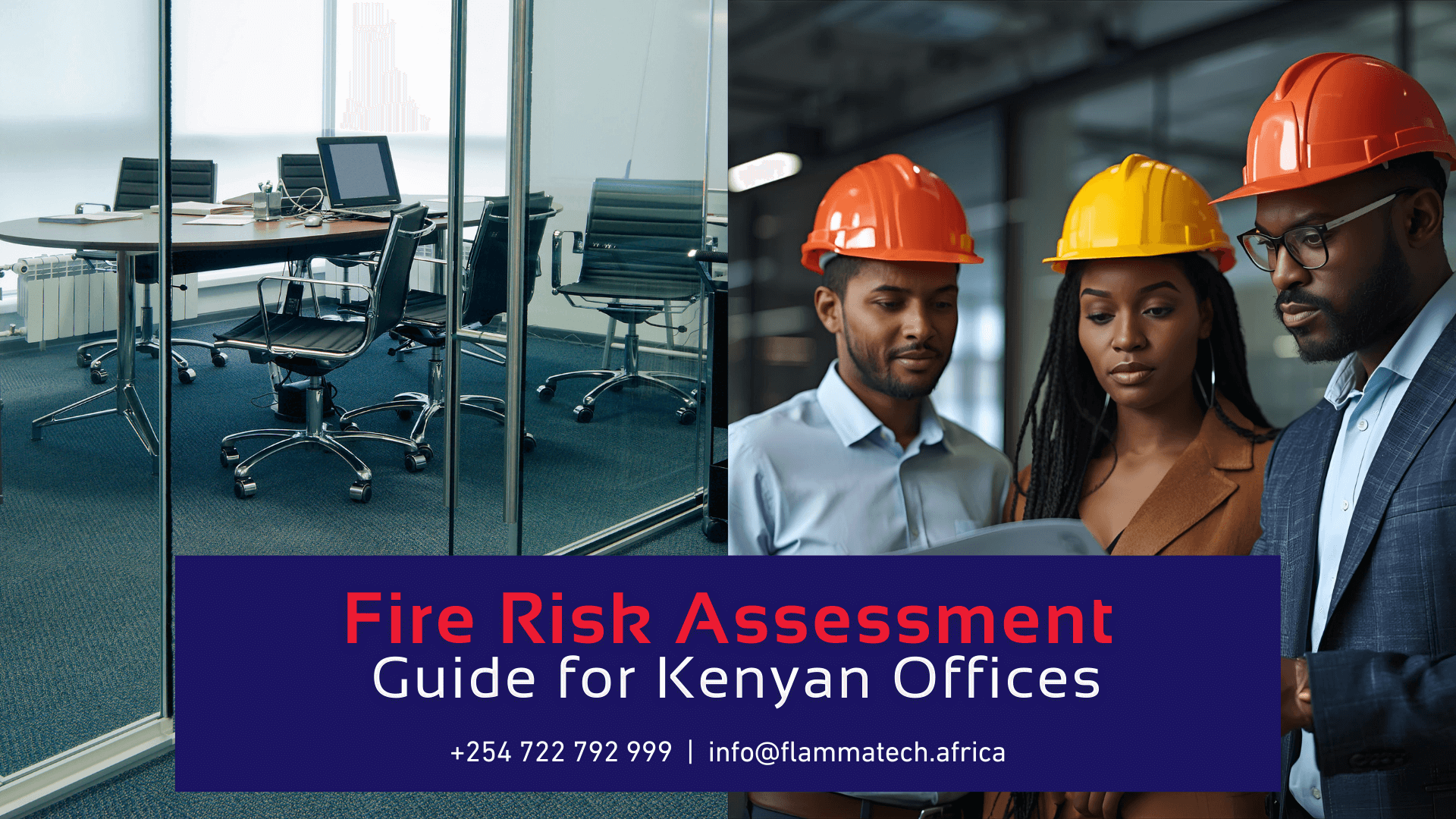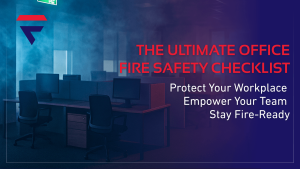In the bustling urban landscapes of Kenya, where offices house everything from corporate headquarters to small enterprises, fire risks lurk in unexpected places — overloaded electrical sockets, cluttered storage areas, or even poorly maintained equipment.
A fire risk assessment isn’t just a regulatory checkbox; it’s a vital process to identify, evaluate, and mitigate potential fire hazards, ensuring the safety of employees and assets. According to recent data, Kenya experiences numerous fire incidents annually, with informal settlements and urban areas seeing heightened vulnerabilities, underscoring the need for proactive measures in office environments.
Understanding Fire Risk Assessment in Kenya
A fire risk assessment involves systematically reviewing your office space to spot ignition sources, flammable materials, and vulnerable people. In Kenyan offices, this is particularly crucial due to common challenges like power surges from unreliable electricity supply and the prevalence of combustible office furnishings. The Occupational Safety and Health Act of 2007 mandates that employers ensure workplaces are free from fire risks, emphasizing prevention through regular assessments. This act aligns with global standards but is tailored to local contexts, such as the high density of multi-story buildings in Nairobi.
Key Legal Requirements for Kenyan Offices
Kenya’s fire safety regulations are outlined in the Fire Risk Reduction Rules of 2007, which require offices to maintain fire-resistant construction, properly store flammable substances, and conduct regular inspections of fire detection and suppression systems. Additionally, the rules stipulate that all fire-fighting appliances must be serviced regularly, and clear labeling of hazards is mandatory. Non-compliance can lead to penalties, but more importantly, it heightens the risk of tragedies like the supermarket fire in Nairobi that claimed lives and disrupted businesses. Offices in Kenya must also adhere to evacuation procedures and provide training, as per the five fundamental fire safety principles: prevention, detection, containment, extinction, and evacuation.
Steps to Conduct an Effective Fire Risk Assessment
Step 1: Identify Hazards
Walk through your office to note potential ignition sources like faulty wiring or heaters near paper stacks.
In Kenyan settings, common issues include overloaded power strips during peak hours or stored chemicals in unsecured areas.
Step 2: Evaluate Risks
Assess who might be harmed—employees, visitors, or those with disabilities—and the likelihood of a fire occurring.
Step 3: Implement Controls
Install fire detection systems and ensure clear evacuation routes.
A standard checklist for Kenyan workplaces includes verifying fire alarms, extinguishers, and emergency lighting.
Record findings in a detailed report, review it annually, and train staff on response protocols.
For urban offices in Nairobi, consider local factors like traffic congestion that could delay emergency services.
Common Fire Hazards in Kenyan Offices
Electrical faults are a leading cause, often exacerbated by Kenya’s fluctuating power supply, leading to short circuits in outdated wiring. Flammable materials, such as paper documents or cleaning solvents, pile up in storage rooms, creating fuel for fires. Poor housekeeping, like blocked exits or cluttered desks, compounds these risks, especially in high-occupancy buildings. In recent years, incidents in commercial premises have highlighted the dangers of inadequate municipal response in densely populated areas like Kisumu CBD.
Mitigation and Best Practices
To counter these hazards, invest in robust fire safety systems like pumps, detection alarms, and rated doors. Regular audits, as per Kenyan guidelines, can reduce risks significantly. Promote a culture of safety through employee training and drills. For example, ensuring fire pumps and equipment are maintained can prevent escalation, as seen in various urban setups.
Flammatech has contributed to safer environments by installing firefighting equipment and fire pump sets at ENAKI RESIDENCY, THE PROMENADE in Nairobi, and EABL OFFICES in Nairobi, along with fire pump sets and steel & timber fire-rated doors at CAPITAL M APARTMENTS in Nairobi. These implementations demonstrate practical applications of assessment outcomes in real Kenyan offices and residential complexes. .
Prioritize Safety Today
Conducting a thorough fire risk assessment safeguards lives and livelihoods in Kenyan offices. By following these guidelines and staying compliant with local regulations, you can minimize threats and foster a secure workspace. For expert assistance, reach out to Flammatech to get fire safety solutions tailored to your needs—because in fire prevention, preparation is everything.






